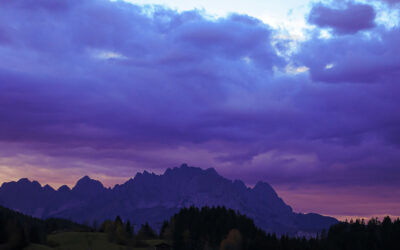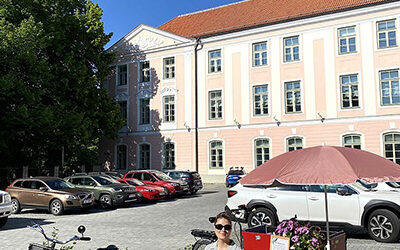Read the whole article: https://y4c.medium.com/a-rising-europe-how-young-eastern-europeans-push-the-region-to-lead-on-climate-peace-and-energy-196834d6ce55
An applause broke after a few seconds of tense silence in a university classroom in Warsaw — to the relief of my Ukrainian namesake leading the proceedings, the 2023 Regional Youth Statement for Eastern Europe was adopted on time on a Sunday. It put an end to a three-day long marathon of workshops, drafting sessions and fun and quality time that the organizers of the Regional Conference of Youth (RCOY), Wschod Initiative and Sustainability Narrative Institute, arranged for more than 50 participants — from Estonia in the north to Georgia in the south.
Not a moment too soon
This RCOY came at an important moment — for the first time after the pandemic and the outbreak of Russian aggression against Ukraine, climate activists from Central and Eastern Europe, Baltics, South Caucasus and Turkiye came together in person (with healthy online participation as well) to outline their vision for climate policy in the region before the UNFCCC COP Presidency passes from the UAE to an Eastern European country. Ukrainian organizers and participants, defiant in their determination to lay down a green recovery vision for their country and beyond even amid a devastating war that has included acts of ecocide, encouraged us to think boldly and share experiences with one another.
I was glad to oblige, having had the honor to open the RCOY with a talk on how we can capitalize on the momentum generated by the war to propel our unique and fresh perspectives on climate, peace and security, as well as lessons for green transition from the post-communist one. Judging by the discussions that followed, it struck a chord, as the role of fossil fuels in undermining peace in our region became the central theme of our work.
It was being done from many angles and perspectives. One could have met Fridays for Future activists already planning their next campaign on the topic. Then there were also those who, like me, as well as Viktoriya Ball, Valeriia Bondarieva, Diana Garlytska and Vladislav Malashevskyy (whose hard work made the RCOY possible), were focusing on how we could use the insights from Warsaw at the upcoming COP28 negotiations. Or one could have learnt from someone like Hanah Lahe, who took a rare leap from chairing Estonian Youth Climate Council into becoming her country’s youngest parliamentarian last spring.
“Insiders” and “outsiders”
Her insights brought into the limelight an uncomfortable dilemma that is familiar to climate activists way beyond our region. We are in our vast majority dissatisfied with the quality of our democracies and their ability to provide meaningful and lasting solutions to the climate crisis, which makes us inherently skeptical of the political realm and willing to pressure the politicians more from the ‘purer’ outside. But can this work if, in our conscious decision to not contest the seats in places where the decisions are actually made, we by default leave the stage to those who are incompetent at best and unscrupulous at worst? Answers in the audience varied but still leaned towards confirming the general reluctance to embrace the electoral path, for now. Hers has been to engage constructively with the nitty-gritty of party politics, while remaining aware of its shortcomings and building bridges with those who remain in activism.
This diversity of opinions only further enriched the work on the Regional Youth Statement. The stakes are high: everyone was aware of the need to balance the imperative to provide our special regional perspective to the Global Youth Statement (which YOUNGO, official youth constituency to the UNFCCC, will go with to Dubai) with the importance of alignment with key demands from our fellow climate advocates from the Global South.
Our kind assistant in this delicate act was Zihan Xuan, YOUNGO Focal Point for the Global North, who came to Warsaw straight from the UN General Assembly and New York Climate Week. “It is the only RCOY in my mandate”, he noted with a mix of pride to be an honorary Eastern European for a couple of days and sadness that the Western peers hadn’t followed suit with an RCOY of their own. The observation did not go unnoticed and reinforced the belief among those present that if you were in search of a fresh and bold European youth perspective on climate, you should go east.
When to be bold is a necessity
A few core topics of interest emerged. A vibrant discussion and intense hashing out of the wording produced a strong section on empowering youth in climate advocacy. There is no such thing as too much activism in our region, where the level of climate discourse and policymaking is still years behind Western Europe, so providing solutions on encouraging and making engagement in advocacy safer is crucial. A chapter on sustainable agriculture, a touchy subject in a region significantly benefitting from the Common Agricultural Policy of the EU and where traditional Big Ag lobby is still influential, left no stone unturned in the supply chains. Post-war recovery of Ukraine, regional clean energy transition, and climate, peace and security become intertwined, as the independence and prosperity of our countries uniquely and equally depends on each of these pillars. You can read the result yourselves and, if you are an Eastern European yourself, endorse it.
As the time came to bid each other farewell upon closing the Conference, I reflected on the slogan “another world is possible” that is popular in our circles. Having walked around Warsaw that bears a lot of reminders of a brutal war waged not far from there thanks to fossil fuel revenues, it seemed to me that “possible” is too weak of an adjective to use in our case. It is, in fact, necessary to make the vision of the future we (and not only we) want to become a reality for our region to not just survive, but also thrive.
And I couldn’t have been happier to be with the movers and shakers who will surely achieve this.




